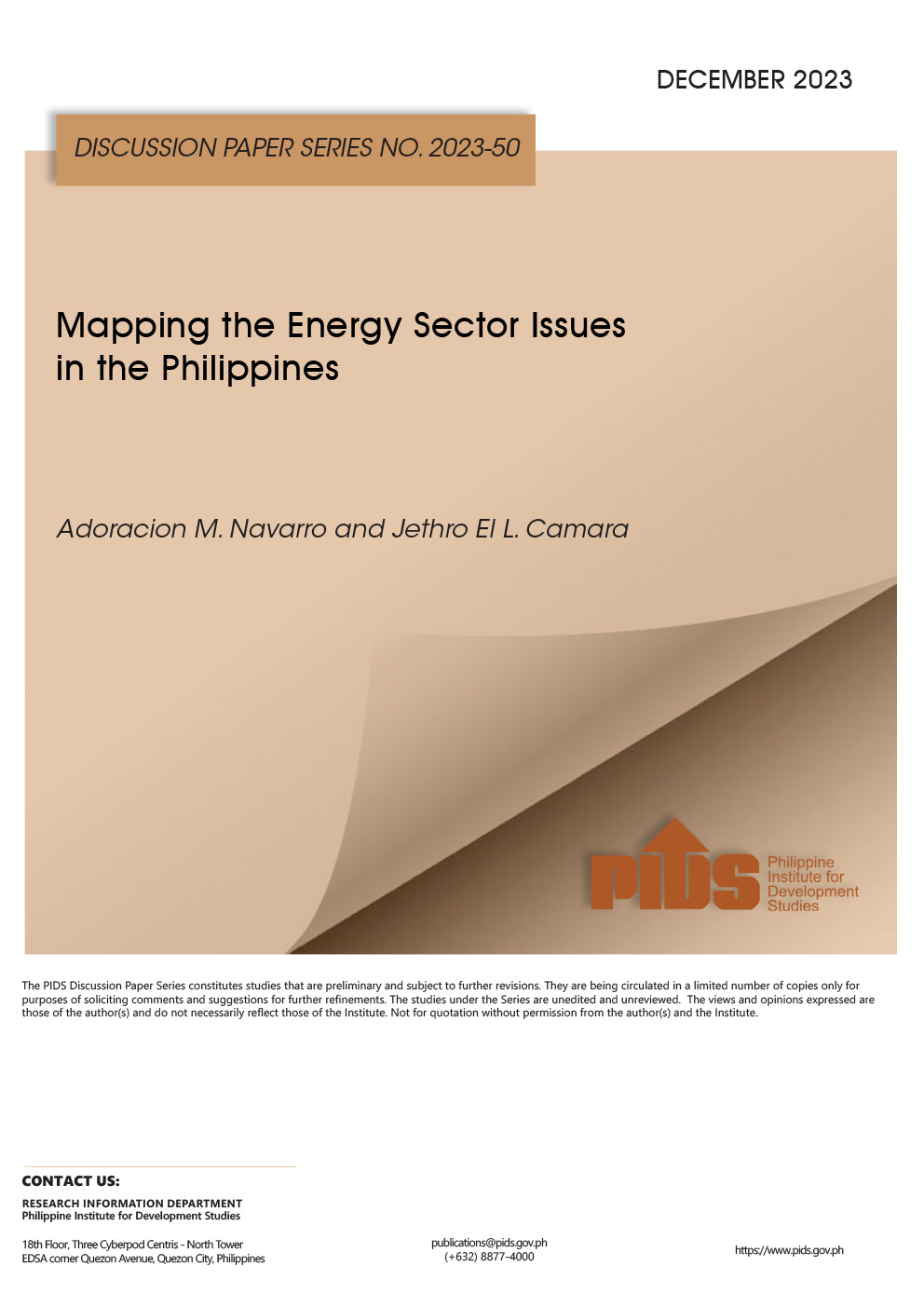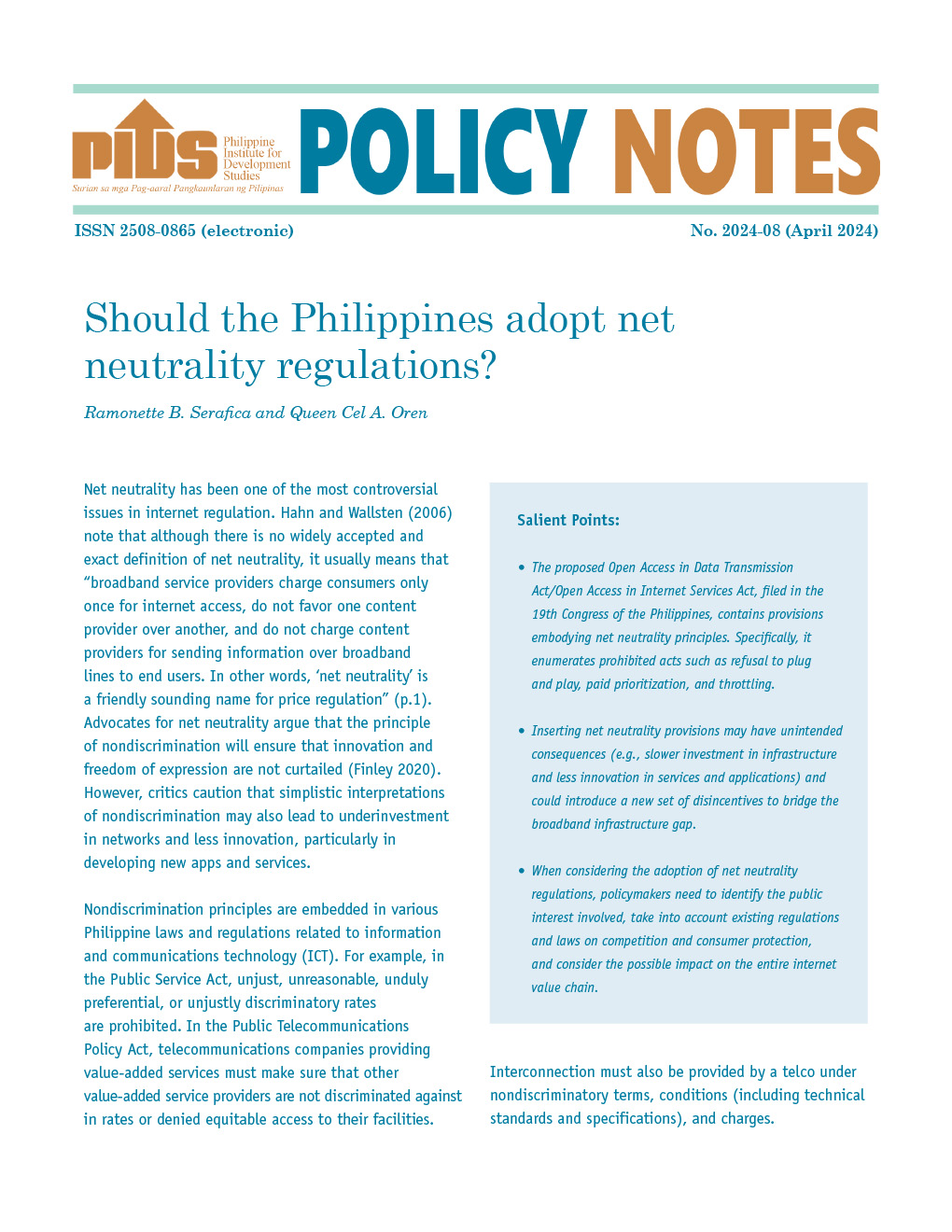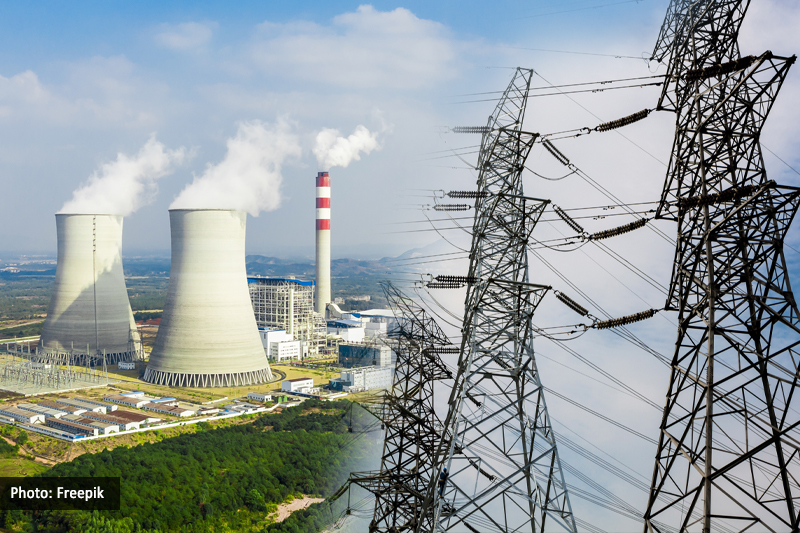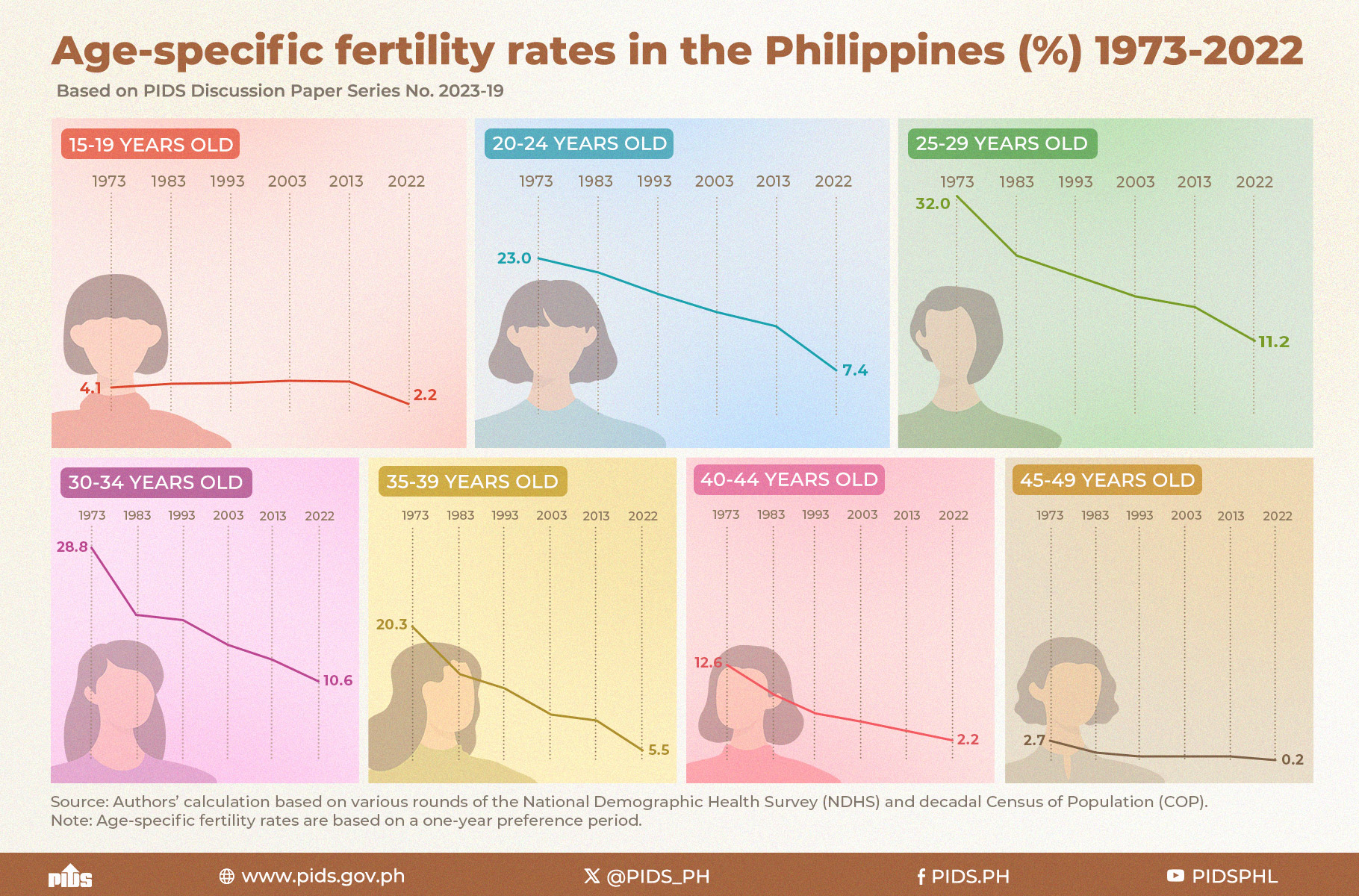MANILA, Philippines — The Philippines needs to climate-proof its power infrastructure and make access to power by electric cooperatives a priority to address supply interruptions that lead to economic losses, according to state think tank Philippine Institute for Development Studies (PIDS).
In a discussion paper titled “Electricity Supply Interruptions in the Philippines: Characteristics, Trends, Causes,” PIDS research fellow Kris Francisco said as electricity is a crucial input in the production process of many sectors and industries, and allows households to be more efficient and spend time on more productive activities, having supply disruptions means losses for the economy.a
Citing the World Bank Enterprise Survey, Francisco said electricity has been cited as one of the factors affecting the country’s business environment with firms losing 0.8 percent of annual sales, on average, due to power outages.
Despite the impact of electricity supply disturbances on the economy, Francisco said it has “historically received little attention from our policymakers.”
To address the electricity supply disruptions, among the recommendations made in the study is to improve and build climate-resilient power and electricity-related infrastructure.
The study found that environmental factors, by and large, cause a big portion of the electricity supply disruptions.
Among all environmental factors, major storm disasters were found to be the biggest cause of frequent and long duration of power interruptions.
“This is quite concerning given that the Philippines experiences numerous typhoons a year. Concurrently, this begs the need to improve and climate-proof our power and electricity-related infrastructure to protect them from damages and shorten the duration of downtime after weather-related events,” Francisco said.
The study also found that insufficient power supply to electric cooperatives is a main contributory factor to frequent power interruptions.
The PIDS said an average consumer of electric cooperatives in the country experienced a total of 8.8 hours of no electricity last year, an improvement compared to 11.3 hours in 2015.












